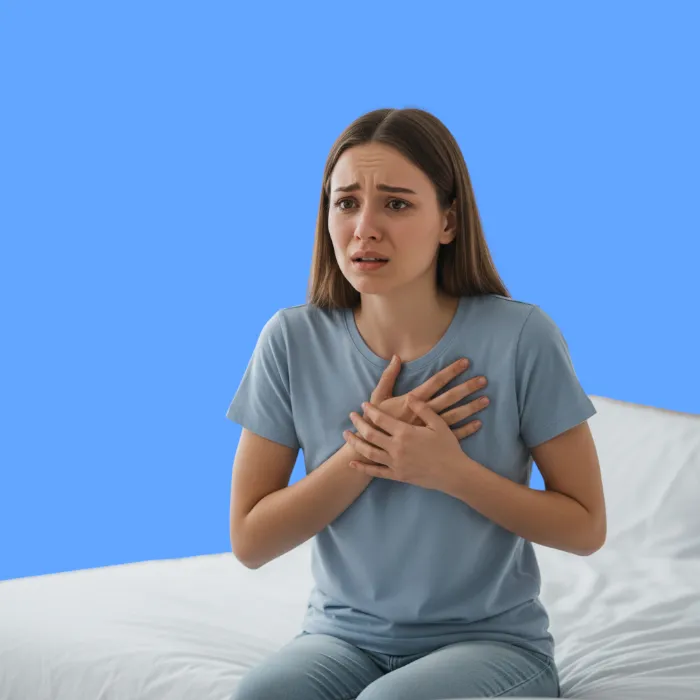what is panic attacks?
Panic attacks are sudden episodes of intense fear that occur without a clear reason, accompanied by physical and psychological symptoms that make the person feel in extreme danger or close to death.
These attacks usually happen unexpectedly, even during rest, and last for a few minutes that feel very long to the patient, causing severe confusion and difficulty in controlling the situation.
what are the causes that may lead to it?
There are several common causes of this condition, including:
- Continuous psychological stress or daily pressure.
- Emotional trauma or loss of a loved one.
- Chronic anxiety disorders.
- Chemical changes in the brain.
- Genetic factors and increased susceptibility.
- Excessive intake of caffeine or stimulants.
- Certain physical illnesses such as thyroid disorders.
what are the symptoms that may indicate it?

here are several common symptoms that patients may experience, including:
- Sudden rapid heartbeat.
- Shortness of breath or feeling of choking.
- Excessive sweating or body tremors.
- Chest pain or pressure.
- Dizziness or loss of balance.
- Intense fear of dying or losing control.
- Tingling in limbs or facial numbness.
when should you see a doctor?
It is advised to seek medical help immediately if any of the following occur:
- Frequent and closely spaced attacks.
- Symptoms persist long after the attack ends.
- Attacks interfere with daily life or work.
- Signs of depression or suicidal thoughts appear.
- Inability to sleep due to constant anxiety.
what are the available treatment options?
There are several ways to treat this condition, including:
- Cognitive behavioral therapy to change negative thoughts.
- Relaxation techniques such as deep breathing and meditation.
- Regular exercise to reduce stress.
- Avoiding stimulants like caffeine and smoking.
- Family and social support to reduce isolation.
can full recovery happen?
Recovery is possible if the patient follows psychological therapy and lifestyle changes, especially with early diagnosis.
The duration of recovery varies from person to person depending on severity and available support, but most patients improve significantly with proper treatment.
what are the prevention tips?
Here are some tips to prevent this condition:
- Maintain regular sleep and adequate rest.
- Exercise regularly.
- Avoid psychological stress as much as possible.
- Stay away from stimulants and alcohol.
- Practice daily relaxation techniques.
what are the possible complications?
Some complications may occur if treatment is neglected, such as:
- Development into generalized anxiety disorder.
- Chronic depression.
- Loss of ability to work or study.
- Unhealthy dependence on medications.
- Increased risk of social isolation.
frequently asked questions about panic attacks
Are panic attacks dangerous?
No, but they are distressing and need psychological treatment.
How long does an attack last?
Usually between 5 and 20 minutes.
Can they occur during sleep?
Yes, they can happen suddenly at night.
Are they related to heart disease?
No, but symptoms may resemble heart problems.
article summary
Panic attacks are sudden psychological episodes that cause intense fear and disturbing physical symptoms, but they are not dangerous if managed properly.
Prevention and early treatment are key to avoiding complications and improving quality of life, so do not hesitate to seek help when needed